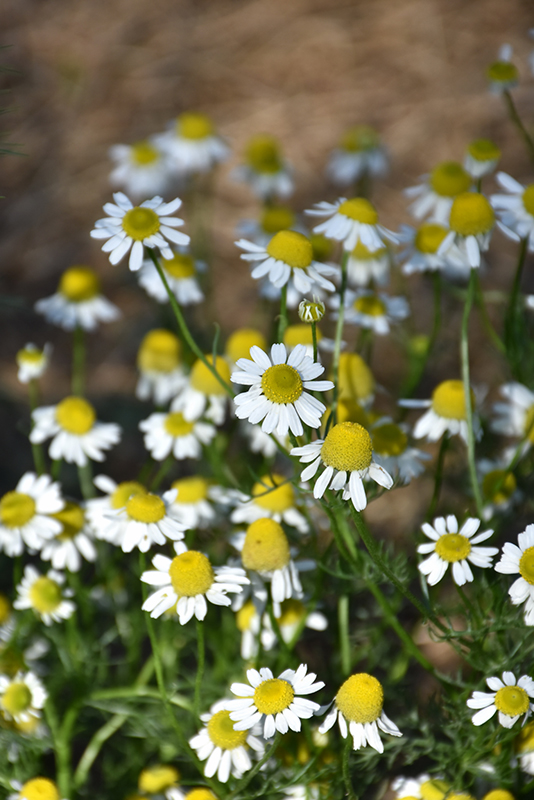Height: 24 inches
Spread: 18 inches
Sunlight:
![]()
![]()
Hardiness Zone: 2
Other Names: Matricaria recutita
Description:
Widely used for herbal tea, this selection features fragrant green foliage and white daisy-like flowers with yellow centers; low maintenance and easy to grow; blooms from late spring through summer; ideal for herb gardens, mass planting or in containers
Edible Qualities
German Chamomile is a perennial herb that is commonly grown for its edible qualities, although it does have ornamental merits as well. It produces white flowers which are harvested from mid spring to mid summer. The flowers have an earthy taste.
The flowers are most often used in the following ways:
- Tea
Features & Attributes
German Chamomile features dainty lightly-scented white daisy flowers with yellow eyes at the ends of the stems from mid spring to mid summer. Its deeply cut grassy leaves remain light green in color throughout the season.
This is an herbaceous perennial herb with a mounded form. It brings an extremely fine and delicate texture to the garden composition and should be used to full effect. This plant will require occasional maintenance and upkeep, and is best cleaned up in early spring before it resumes active growth for the season. It is a good choice for attracting butterflies to your yard, but is not particularly attractive to deer who tend to leave it alone in favor of tastier treats. Gardeners should be aware of the following characteristic(s) that may warrant special consideration;
- Self-Seeding
Aside from its primary use as an edible, German Chamomile is sutiable for the following landscape applications;
- Mass Planting
- General Garden Use
- Herb Gardens
Planting & Growing
German Chamomile will grow to be about 24 inches tall at maturity, with a spread of 18 inches. It grows at a fast rate, and under ideal conditions can be expected to live for approximately 5 years. As an herbaceous perennial, this plant will usually die back to the crown each winter, and will regrow from the base each spring. Be careful not to disturb the crown in late winter when it may not be readily seen!
This plant is quite ornamental as well as edible, and is as much at home in a landscape or flower garden as it is in a designated herb garden. It does best in full sun to partial shade. It is very adaptable to both dry and moist locations, and should do just fine under typical garden conditions. It may require supplemental watering during periods of drought or extended heat. This plant does not require much in the way of fertilizing once established. It is not particular as to soil type or pH. It is somewhat tolerant of urban pollution. This species is not originally from North America.

